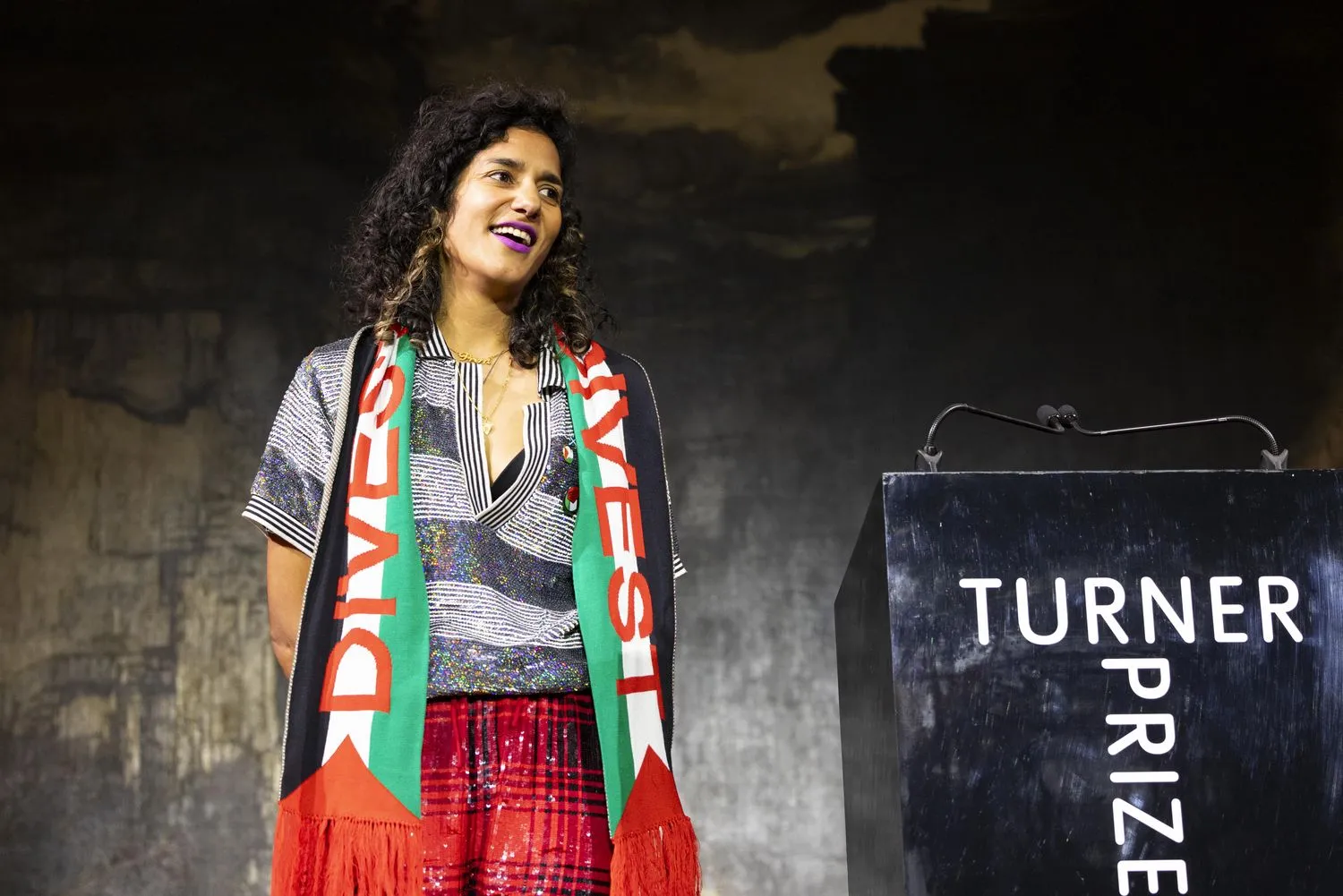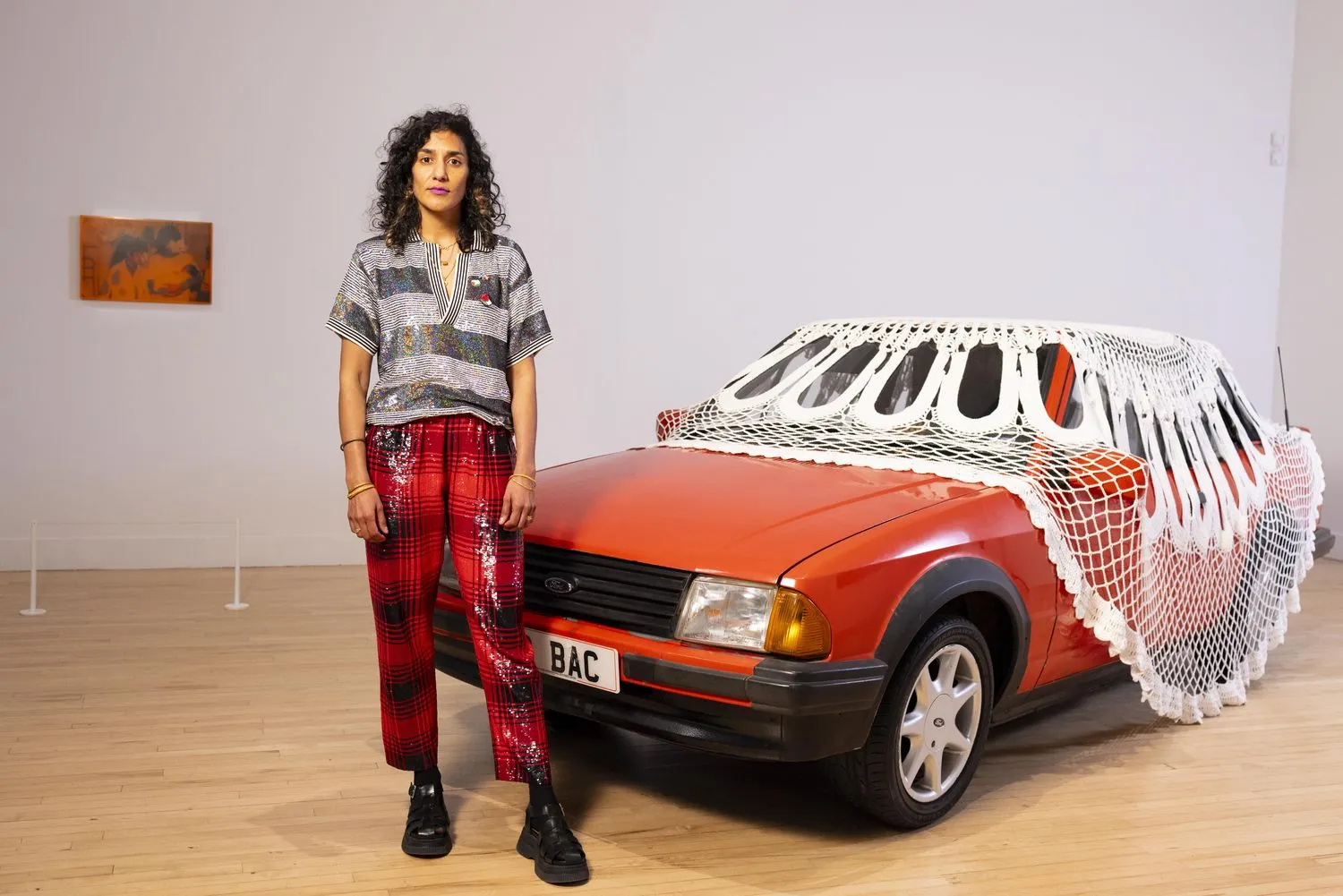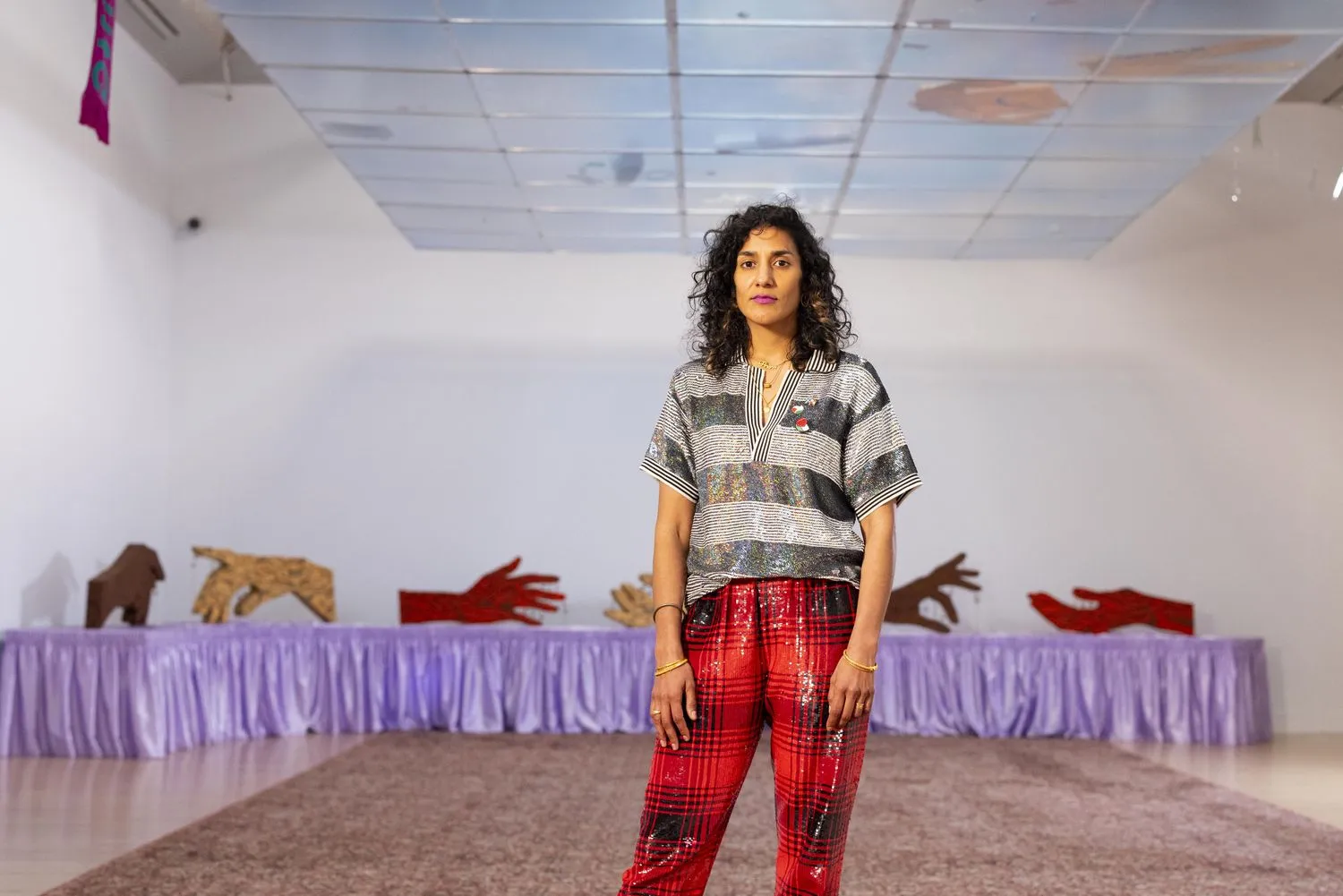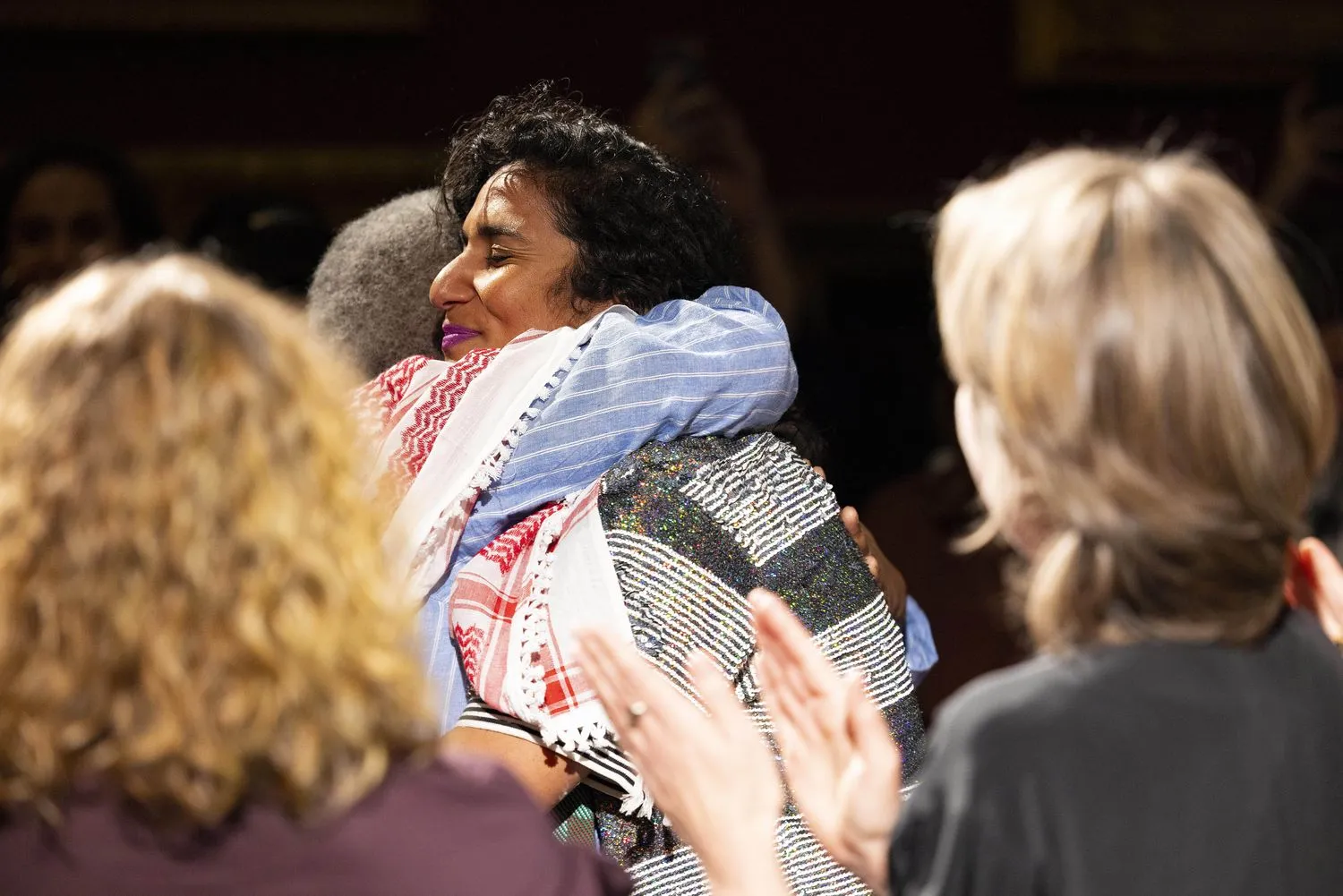 Jasleen Kaur, Turner Prize 2024
Jasleen Kaur, Turner Prize 2024 Jasleen Kaur has won the 2024 Turner prize for her work animating everyday objects to reflect the pluralities of identity and community. Announced at Tate Britain by actor James Norton and broadcast live on BBC News, this year's prize celebrates its 40th anniversary. Kaur, whose thought-provoking work fuses personal, political, and spiritual elements, stood out among a shortlist of four exceptional artists: Pio Abad, Claudette Johnson, and Delaine Le Bas. Kaur will receive £25,000 in prize money, while other shortlisted nominees will receive £10,000 each.
Kaur used her acceptance speech to make a powerful statement in solidarity with Palestine. During the event, protestors gathered outside London’s Tate Modern, calling on the gallery to sever connections with organizations linked to the Israeli state. Last week, Kaur endorsed this campaign by signing an open letter, and as she accepted the prize, she reinforced her position, wearing a scarf in Palestinian flag colors emblazoned with the word 'DIVEST.'


The artist expressed support for the protestors outside, emphasizing their efforts to bring attention to the demands outlined in an open letter, which, as she explained, had gathered 1,302 signatures within a week.
“This is not a radical demand. This should not risk an artist’s career or safety. We’re trying to build consensus that the ties to these organisations are unethical, just as artists did for Sackler,” she said, referencing the effort to sever art institutions' connections with the Sackler family over their role in the opioid crisis.
“I’ve been wondering why artists are required to dream up liberation in the gallery but when that dream meets life, we are shut down,” she continued. “I want the separation between the expression of politics in the gallery and the practice of politics in life to disappear. I want institutions to understand that if you want us on the inside you need to listen to us on the outside. We needed a ceasefire a very long time ago, we need a proper ceasefire now. We need an arms embargo now. Free Palestine."

Jasleen Kaur’s artistic practice explores the intersections of identity, culture, and heritage, often reflecting on the nuances of everyday objects and their symbolic resonance. Her work transforms familiar materials into powerful narratives, weaving together elements of sound, installation, and personal storytelling. Kaur frequently examines themes of community and cultural inheritance, blending the personal, political, and spiritual in evocative ways. Her approach often draws from her Sikh heritage, offering a layered and multifaceted exploration of resilience, connection, and shared humanity.
At 38, Kaur was the youngest of the nominees. The jury commended Kaur's innovative approach in her exhibition Alter Altar, where she transformed everyday objects into evocative art forms. By integrating sound and music, that combines worship bells, Sufi Islamic devotional music, Indian Harmonium, and pop tracks, Kaur created a sense of unity and cultural inheritance. The use of unexpected materials, such as Irn-Bru, family photographs, and a vintage Ford Escort, adds layers of storytelling that reveal resilience and connection. These inventive combinations underscore her ability to foster intimacy and inclusivity through her work.
The Jury highlighted the relevance of Kaur’s work, noting its ability to "speak imaginatively to how we might live together in a world increasingly marked by nationalism, division and social control." They also commended the "considered way in which she weaves together the personal, political and spiritual" in her exhibition, emphasizing the depth and thoughtfulness of her approach.
Following her impassioned speech, Kaur exited the stage to a wave of enthusiastic applause. Addressing her remarks, the Turner Prize presenter noted that Kaur was “obviously expressing her personal opinion and views.”